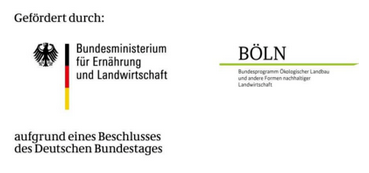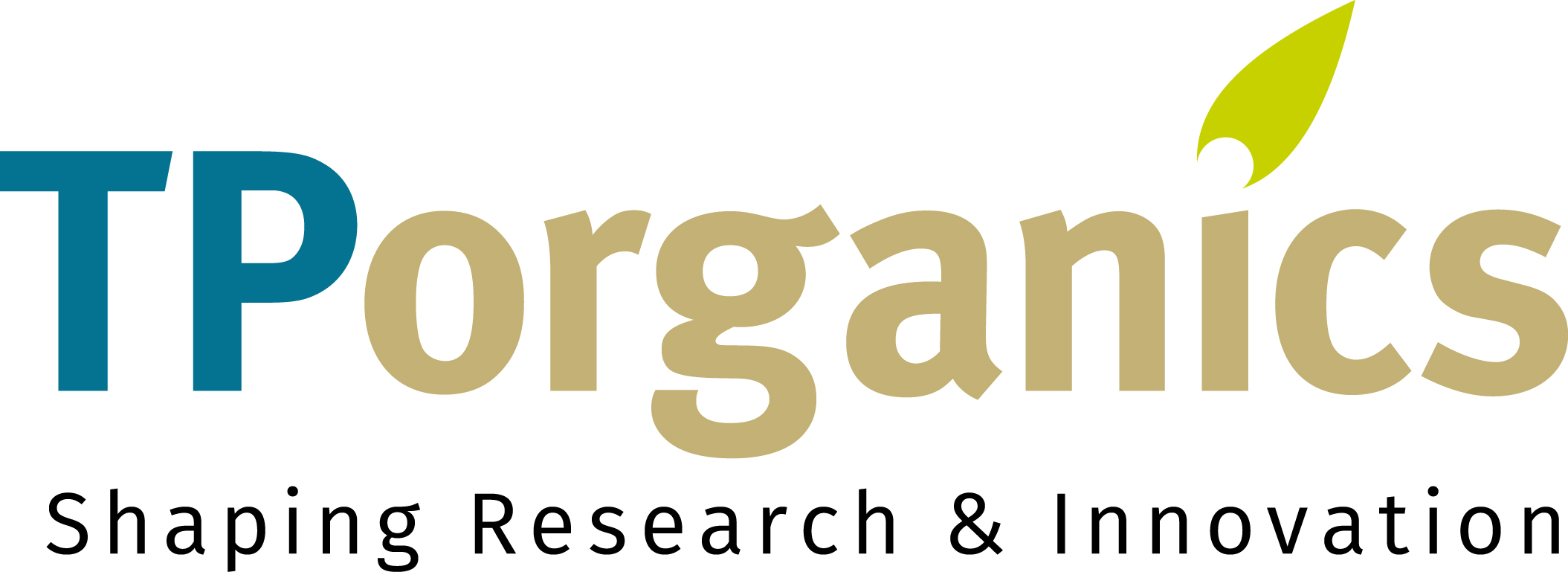Review of events
On November 16, IFOAM Organics Europe and French Member of the European Parliament (MEP) Eric Andrieu (S&D) co-hosted a webinar on the organic approach to plant health.
The webinar explored organic’s approach to plant health and its potential contribution for achieving the Farm to Fork target of reducing pesticide use and risks by 50% by 2030. As the Commission is finalising its proposal on the revision of the Sustainable Use of pesticides Directive (SUD), it was timely to discuss the challenges and policy options to enable pesticide reduction strategies based on effective and ready-to-use alternative approaches, such as organic farming.
What is organic’s approach to plant health?
Jutta Kienzle, independent scientist specialised in pest control in organic fruit growing, started the webinar with a presentation explaining the organic approach to plant health. She described the indirect and preventive measures implemented by organic farmers to reduce the use of inputs as much as possible, and clarified the fact that only natural substances are allowed in organic agriculture, as an active precautionary measure. In conclusion, she emphasised that organic agriculture is not only a low-input approach for plant protection, as is Integrated Pest Management (IPM), but a systemic approach which keeps sustainability beyond the farm gates, throughout the organic value chain, in short: from Farm to Fork.
Challenges to register biocontrol products
Frank Volk, CEO of Biofa (a German SME manufacturing biocontrol products), continued by presenting the challenges related to the registration procedure of biocontrol products. He explained that the registration process of plant protection products should be better adapted to the specific characteristics of natural substances contained in biocontrol products, such as their natural background levels or the natural variations in their composition. He concluded that the main challenge is the current concept of the chemicals-oriented registration process, which leads to the loss of highly selective biocontrol products with favourable ecotoxicological profile as there is no return on investment.
These presentations were followed by a discussion on the role of organic agriculture in the Commission’s upcoming initiatives to achieving the Farm to Fork’s target on pesticide reduction, moderated by Eric Gall, Deputy Director of IFOAM Organics Europe.
Tackling pesticide reductions systemically & moving to low-input systems
Ms Pilar Aguar Fernandez, Director for Health and Food Audits and Analysis in the Directorate-General of Health and Food Safety (DG SANTE), stated that the pesticide reduction issue needs to be tackled systemically, as organic agriculture does. She explained that the revision of the SUD will focus on strengthening certain elements of the directive, such as IPM, and should also propose enhanced record keeping at farm level and crop specific guidelines at Member State level. The goal is to promote a fundamental shift towards low-input systems, where organic agriculture is leading. Regarding the registration process for natural substances, Ms Aguar Fernandez added that the Commission was in the process of updating the rules for microorganisms to facilitate their substitution for chemical products. Once this work is completed, they will look more closely at the situation of semiochemicals and botanicals, to take stock, assess and consider whether additional measures are needed for these substances, similar to what has been done for microorganisms. Finally, she said that the Farm to Fork Strategy’s targets should not be seen in isolation, but as complementary: therefore, increasing organic farming should lead to a reduction in the use of pesticides.
CAP Strategic Plans should contribute to a system approach
Eric Andrieu stressed the role of the future CAP in reducing pesticides and called for vigilance on the quality of the CAP strategic plans to be submitted by the Member States if results are to be achieved in this area. He insisted on the importance of adopting a systemic approach to reduce pesticides rather than simply substituting chemical molecules with natural ones. He highlighted the role of organic farming in this process, stressing the need to support the agricultural sector in its transition to lower-input models. Eric Andrieu concluded that the reduction of synthetic pesticides is by no means a leap into the unknown: economic and technical solutions already exist, it is therefore the responsibility of politicians to seize them during the upcoming discussions on the SUD in order to give farmers the necessary means
Watch the recording of the webinar in French and in English
Nest steps
The European Commission is finalising the impact assessment of the revision of the SUD and is starting to draft the future directive. Internal consultations will take place in the first quarter of 2022 and the Commission is expected to present its proposal of revised SUD on 23 March 2022 (indicative timetable). We will keep our members updated about this process.
For more information on organic plant health and IFOAM Organics Europe’s work on this issue, please contact Mathilde Calmels. IFOAM Organics Europe members can find more information on the member extranet and background materials in the arguments database on the member extranet (main messages, arguments/FAQs, visuals & videos).
For information about what you can gain from being a member, read our membership page and contact [email protected].
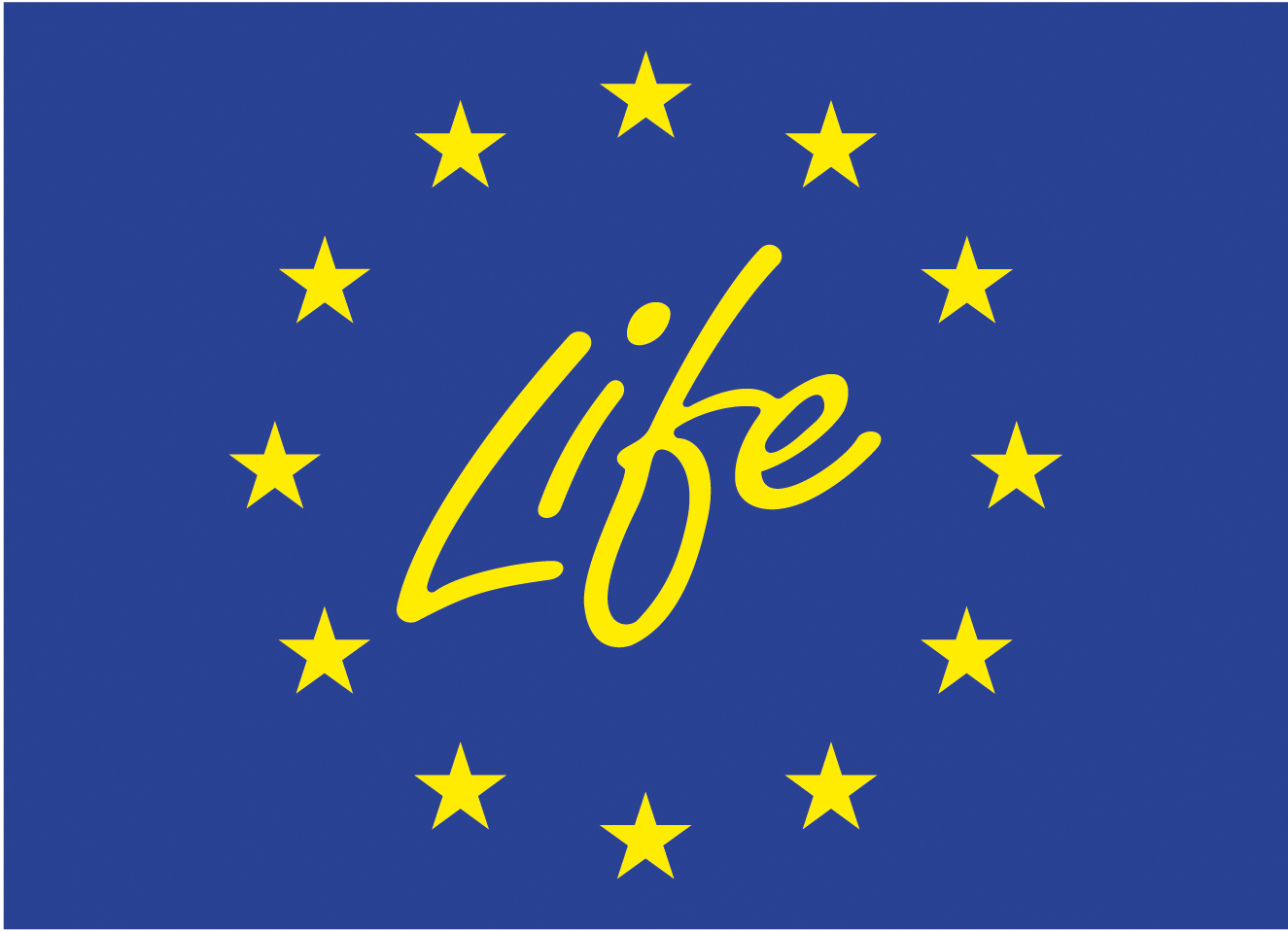
This event was co-financed by the LIFE programme of the European Union, under the under the Climate, Infrastructure and Environment Executive Agency (CINEA). This publication only reflects the views of the authors and its sole responsibility lies with IFOAM Organics Europe. CINEA is not responsible for any use that may be made of the information provided.
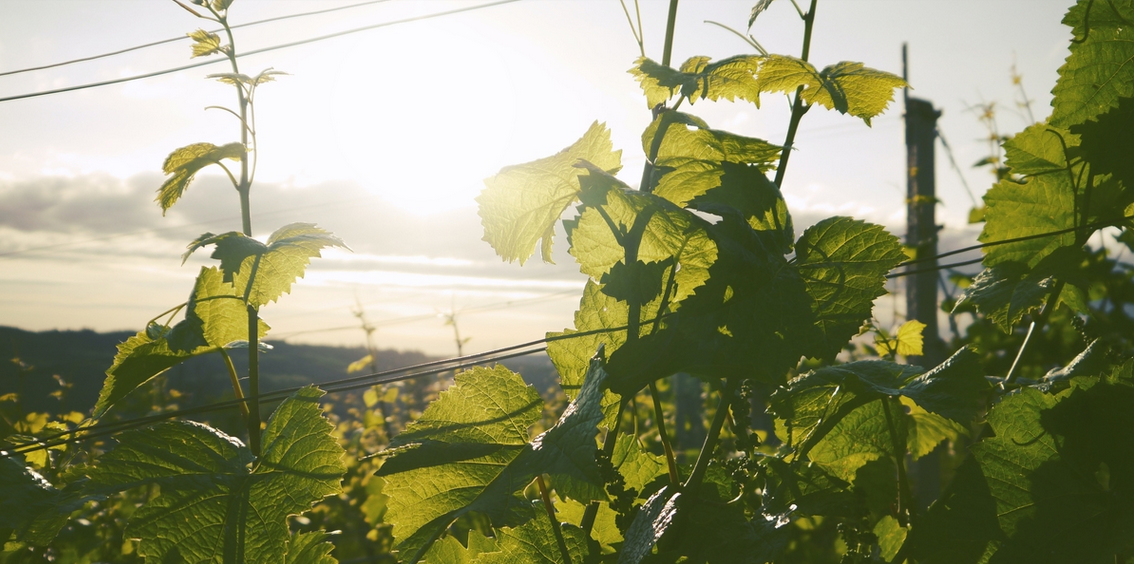
2021 was an extremely rainy year, posing challenges for copper minimization on farms with permanent and specialty crops. As it is clear that farmers and growers will have to prepare for more droughts and heavy rain, discussions on the future of copper minimisation at the 6th European Online Symposium on Copper as a Crop Protection Product, on 17 and 18 November, were very timely.
BÖLW, IFOAM Organics Europe and the Julius Kühn Institute, discussed which innovations can drive minimization and how policy can support the transformation, together with stakeholders from research, industry, practice and policy. On both days, more than 100 people attended the meeting and exchanged views with the speakers in German and English.
On November 17, German organic associations presented their current copper monitoring, and policymakers and practitioners also discussed the topic “Copper as a plant protection product in politics – New tailwind or headwind?”. On the first day of the conference, discussions were in German, with Mathilde Calmels from IFOAM Organics Europe, bringing a European perspective by presenting the European strategy for copper minimisation in organic farming (developed by IFOAM Organics Europe).
The second day of the conference focused more on technical aspects of copper reduction. The speakers presented research results of practical trials and innovative alternative products or strategies regarding the minimization of copper use. Many promising alternatives for copper minimisation were presented, and, as IFOAM Organics Europe, we drew the main conclusion that the organic sector remains proactive in developing an effective copper minimisation strategy, and further support from policy makers is expected to achieve this.
Could not attend the conference? Catch up on the BÖLW website where all speakers’ presentations are available!
For more information on organic plant health and IFOAM Organics Europe’s work on this issue, please contact Mathilde Calmels. IFOAM Organics Europe members can find more information on the member extranet and background materials in the arguments database on the member extranet (main messages, arguments/FAQs, visuals & videos).
For information about what you can gain from being a member, read our membership page and contact [email protected].

COVID-19 has shown how fragile our food systems are and how important it is to develop well-thought supply chains. Our Policy Associate Manager, Silvia Schmidt, chaired this FoodSHIFT 2030 webinar, which highlighted how to transform today’s food supply chains into more sustainable ones by shortening them and bringing local consumers and producers together.
The webinar started with the introduction of the Brasov FoodSHIFT Accelerator Lab in Romania. This FoodSHIFT lab enables producers to connect with local people and restaurants, which is very important for farmers as they depend on the regional market. Following, Tom Uhnak introduced the audience to a form of community supported agriculture in Czech Republic. In this solidarity approach to local food supply, people can visit a website to find or connect with the nearest group to support regional agriculture. Lastly, Nick Weir presented the Open Food Network in the UK. It is a food hub that brings together all regional producers and their consumers, by providing an online market platform. The discussion at the end between speakers and audience also highlighted how important the integration of low-income groups and the digitalization of supply chains are.
Are you interested in this event? Watch the recordings on FoodSHIFT’s YouTube channel.
Visit the FoodSHIFT2030 website to learn more and follow the latest project’s developments on Twitter and LinkedIn, Instagram and YouTube using @foodshift2030. FoodSHIFT2030 is a Horizon 2020 project promoting food systems innovations in nine cities across Europe. More information about the 9 nine FoodSHIFT Labs is available on the FoodSHIFT 2030 website. Follow the project on social media using @FoodSHIFT2030 on Twitter, Instagram, YouTube and LinkedIn. IFOAM Organics Europe contributes to the conceptual framework for further development of governance strategies and food policy strategies. We will also disseminate project outputs within the organic network and at our main events.
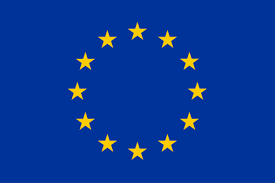
FoodSHIFT 2030 has received funding from the European Union’s Horizon 2020 research and innovation programme under grant agreement number 862716. This communication only reflects the author’s view. The Research Executive Agency is not responsible for any use that may be made of the information provided.

On 30 November and 1 December, the Organic Innovation Days 2021 entitled “Better inputs for organic agriculture” took place online. In 2021,TP Organics’ annual public event, and the only EU event on research and innovation for organic agriculture, collaborated with the two Horizon 2020-funded EU projects RELACS and Organic-PLUS. Both projects aim to reduce the use of controversial inputs in organic farming.
About 140 participants gathered and actively engaged, asking many questions and participating in the intense discussions, exchanging views on the various alternatives to controversial inputs in organic farming and strategies to minimise their use, as well as the socio-economic aspects involved.
Day 1: Alternatives to contentious inputs in organic farming
On 30 November, participants learned more about the outcomes of research on alternatives for plant protection products such as copper and mineral oil, as well as soils and nutrients, peat and plastics, antibiotics, vitamins, and novel bedding materials in livestock husbandry.
All about plant protection
The event started with a presentation by expert Annegret Schmitt from the Julius Kühn Institute on the topic of copper, about promising alternatives for copper that have been developed but show some limitations. More continuous research is needed in the future. Nikolaos Katsoulas (UTH), another expert on this topic, emphasised in his presentation that zero-copper in plant protection cannot be achieved by a simple substitution strategy; it requires a profound reconstruction of the crop production system. Vincenzo Verrastro from CIHEAM-IAMB showed the participants that alternatives to mineral oils are feasible, effective, in line with EU policies, and a safe option for the environment. Bringing innovations such as the practical application of the vibration signal method to the market requires support from consultants/advisors and an action plan to promote these innovations.
Soil and nutrients
In the following session, alternative soil nutrients as well as peat and plastic were presented and discussed by the experts Jakob Magid from Copenhagen University, Anne-Kristin Løes from Norwegian organic research institute NORSØK and Francis Rayns from Coventry University (Organic-PLUS). Nitrogen use efficiency is highly variable between countries and farms and in the case of many farms below 60 kg N/ha. To ensure nutrient supply and avoid soil nutrient depletion, recycling of societal waste streams needs to be further developed and researched. Anne-Kristin Løes stressed that the demand for nutrients and organic matter to be applied in organic agriculture will increase significantly due to the EU Farm to Fork target of 25% organic land target by 2030. On the use of plastic and biodegradable mulch films, Francis Rayns remarked that many types of alternative materials are available, but more knowledge about treatment technologies and applications is needed. Loose mulch films also require further investigation, especially for small and medium growers. Organic farming should lead the way in phasing out the use of peat.
Alternatives used in livestock husbandry
In the afternoon, several experts talked about alternatives that can be used in livestock husbandry. Michael Walkenhorst from FiBL presented how to combat mastitis, one of the most important diseases in dairy cattle, with essential oils and without antibiotics. One challenge in introducing alternative animal husbandry methods that replace antibiotics is educating veterinarians and farmers about the protocol and legal requirements. Animal Health and Welfare Planning (AHWP) could halve antibiotic use under certain conditions.
According to Spiridoula Athanasiadou from SRUC, Scotland’s Rural College and Tove Serup from Danish research centre SEGES, while alternatives to anthelmintics in organic animal husbandry have shown huge potential, these should not be seen as a new drug. What is needed above all is a rethinking of how immune response and nutrition can contribute to infection control. Håvard Steinshamn discussed the work of RELACS on the reduction of vitamin B12 supplements in organic chickens. In some groups, doses can be reduced, but others require further investigation.
Next, Federico Righi presented novel bedding material researched within Organic-PLUS, including studies conducted on poultry, broilers and dairy cattle which provide comparisons to traditional bedding materials.
The first day was concluded with summary statements by the project coordinator. Judith Conroy from Organic-PLUS pointed out the differences between countries. There is no single solution; a combination of alternatives must be sought. Lucius Tamm from RELACS added that robust varieties and biodiversity are key to all alternative solutions to contentious inputs. In various cases, results of this research can be relevant for conventional farmers, too.
Day 2: Socio-economic aspects and the way forward for contentious inputs
In the introduction to the second day, Bram Moeskops, Senior Scientific Coordinator of TP Organics, emphasised that the debate about improving organic practices and developing the sector comes at the right time, with the new EU Organic Regulation entering into force on 1 January 2022. Reducing use of the most contentious inputs is part of living up to organic’s principles.
Socio-economic aspects
In the first insightful presentation of the socio-economic results, Adrian Evans from the Coventry University highlighted the benefits of working together with citizens and farmers in the frame of Organic-PLUS. Next, Assumpció Antón reported on the environmental impact assessment of controversial inputs and organic alternatives carried out according to the EU-recommended Life Cycle Assessment (LCA) method, covering the whole production chain and consumption. Limitations were pointed out, such as the lack of background data for organic farming. In addition, the methodologies for impacts on organic production are not yet fully developed, for example, the category of impacts on biodiversity.
Lucius Tamm identified different minimisation strategies. Especially input suppliers have lots of work and investment to do in the coming years regarding copper alternatives. Robust varieties mostly depend on breeders, but farmers, retailers and consumers have to adapt as well. This applies also to plant protection products like orange oil and Clitoria, vibrational disruption, recycled fertilisers, and matching regional resources with demand to replace mineral oil.
Mathilde Calmels from IFOAM Organics Europe closed the first session of the second day with a presentation of the development European roadmaps for the reduction of controversial inputs. She reported on national workshops with farmers, advisors and scientists that have been organised to discuss the alternatives developed by RELACS. While alternatives to copper, mineral oils and nutrients are well acceptable based on current knowledge, residues and impurities remain bottlenecks. Compatibility with organic principles must be ensured.
What can the Organic Action Plan deliver?
Nathalie Sauze-Vandevyver, Director for Quality, Research & Innovation at the European Commissions Directorate-General for Agriculture and Rural Development (DG AGRI) explained what the EU Organic Action Plan can achieve. She thanked the organic movement and praised the excellent multilateral partnership for the research and innovation contributions of the organic sector. She also emphasised that organic farming supports the EU Green Deal and related EU Farm to Fork and EU Biodiversity targets. Some regulations hinder the uptake of natural products, which should be resolved to give farmers a bigger toolbox. Work is being done on this, but there is no separate system for registering products used in conventional and organic farming under horizontal legislation.
Policy debate: Tackling contentious inputs in organic farming
The highlight of the Organic Innovation Days 2021 was the policy debate moderated by Eduardo Cuoco, Head of the TP Organics Secretariat. It brought together Nathalie Sauze-Vandevyver, Werner Vogt Kaute, advisor at Naturland and project coordinator, and Faustine Bas-Defossez, External Impact Director at IEEP.
Nathalie Sauze-Vandevyver underlined the importance of platforms like the Organic Farm Knowledge platform for knowledge exchange and revealed that organic farming has been selected as a priority in the EIP-AGRI work programme 2022. She also pointed out that the EU Action Plan aims to promote research and innovation in forestry, agriculture and rural areas, all relevant topics for the organic sector. Werner Vogt-Kaute agreed but noted that it is also important to promote advice directly on the farms. There is also a need for solutions for livestock farming, as far too little research is done on this topic. Research activities need to be intensified here!
The panellists agreed that it is a challenge to reach the 25% organic target and at the same time reduce the contentious inputs. To overcome the challenges and reach the target, the results of projects such as those presented at the Organic Innovation Days must be used and implemented. Faustine Bas-Defossez added that the 2050 carbon neutrality target will have a major impact on the food and agriculture sector. In this framework, the organic sector should be an example for this complex but necessary transition. European Commission initiatives to make sustainable food affordable in the future were discussed as well. All panellists agreed that research and innovation are crucial, and it is important that research results reach the ground.
Next steps
The project coordinators closed the event. RELACS Project Coordinator Lucius Tamm argued for a systems approach that reshapes agricultural landscapes. New solutions require ecological and economic impact assessments. Acceptance along the value chain, independent advice and real cost accounting are crucial. Organic-PLUS Project Coordinator Ulrich Schmutz agreed and stressed the need for working together to improve organic. Other R&I actions should also be looked at, and farmers should be involved.
Conclusion and announcement
We hope you enjoyed this year’s online edition of the Organic Innovation Days and the sessions you took part in! If you signed up for the event, you have access to the Hubilo platform for the next 30 days and are encouraged to take the unique opportunity to browse the resources section. To help us improve your experience, we kindly ask you to fill in this evaluation form about the programme and format of the event.
If you did not get the chance to attend the event, we are pleased to inform you that recordings and presentations of all sessions will be made available on the TP Organics website, so stay tuned!
Stay tuned and join us at the next edition of the Organic Innovation Days, which will be held in November 2022 in Belgium.

RELACS seeks to promote the development and adoption of environmentally safe and economically viable tools and technologies to reduce the use of external inputs in organic farming systems. IFOAM Organics Europe is responsible for the communication and dissemination of project results as well as the coordination of the science-practice-policy dialogue. RELACS is an EU Horizon 2020-funded project.
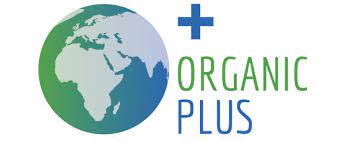
Organic-PLUS project (O+) is a European Horizon 2020-funded project and aims to minimise, and eventually phase out contentious inputs from certified organic agriculture and to provide high-quality, trans-disciplinary, scientifically informed decision support to help all actors in the organic sector. By doing so organic food systems can be truer to the IFOAM organic principle of ‘ecology’.

This event is co-financed by the LIFE programme of the European Union, under the under the Climate, Infrastructure and Environment Executive Agency (CINEA). This publication only reflects the views of the authors and its sole responsibility lies with IFOAM Organics Europe. CINEA is not responsible for any use that may be made of the information provided.
On 7 December 2021, players from the whole (organic) supply chain – including processors, traders, retailers, and certifiers – joined the 4th edition of IFOAM Organics Europe Meets Business.
Once again, the (online) event proved to be a successful occasion to exchange knowledge and experiences on market, policy, and regulatory developments, as well as their impacts on the organic value chain. Participants had the chance to network with expert speakers, (organic) companies and policymakers, through thematic roundtables, interactive coffees, and lunch break.
Consult the full programme on our website and read a summary of the event below.
First session: Organic market development and societal trends
After some welcoming words by Eduardo Cuoco, IFOAM Organics Europe’s Director, the event began with a morning session on the current EU organic market and its foreseen development in the coming years.
Eric Gall, Deputy Director at IFOAM Organics Europe, highlighted the current public interest in organic market development and its central role on the EU agenda. For instance, in the Farm to Fork Strategy, the Commission has set the target of “at least 25% of the EU’s agricultural land under organic farming”, launching the Organic Action Plan to support this ambitious goal. He also claimed that today’s consumers are more demanding for food products that benefit not only themselves, but also the environment, and that organic production currently satisfies this demand.
The following presentation of Carlotta Brondi, Market Analyst at Nomisma, confirmed this trend. Focusing on the Italian and EU market, she displayed interesting data about consumers: in 2021, 89% of Italian consumers bought organic products at least one time and 54% consumed organic products at least once a week. Moreover, Italian consumers believe that public Institutions should spread more awareness about organic. Roberto Pinton, IFOAM Organics Europe board member, shifted the focus to France, Germany, and Sweden, to give a general overview of the current market situation. He shared that French consumers buy organic mainly for health, environmental, ethical and social reason, and, that in Germany, 2020 saw a 22% increase of organic sales. Valentina Gritti, Global Community and Project Manager at Slow Food Youth Network International, closed the session with a focus on youth market trends in Europe. Among these: organic, sustainability, agroecology, no plastic, zero waste, local, fair and climate friendly.
Before switching to a networking lunch break, Andrea Rigoni, President and Chief Executive Officer of Rigoni di Asiago, presented the truly inspiring story of this Italian company, which has always been committed to organic “for a better and sustainable future of today’s consumers and of tomorrow’s generations”.
Second session: (New) EU Organic Regulation
The afternoon session was all about regulation, since the new EU Organic Regulation 2018/848 will enter into force on 1 January 2022.
Emanuele Busacca, Regulation Manager at IFOAM Organics Europe, gave a first general update before handing over to the first speaker Alexander Beck, Managing Board Member of AöL, who introduced the new rules on processing and flavourings. He focussed on new restrictions in the use of conventional natural flavourings and to the Organic Critical Points systematic approach.
Then, Bernard Lignon, Head of Regulation and Quality at Synabio, took the floor to provide insights on the provisions regarding cleaning and disinfectants, from the 2018 Regulation to the actual situation. Concluding this regulation spotlight, Michel Reynaud, Vice-President of Ecocert, displayed the new rules on organic certification and the new import regime in 2022. Concerning controls on compliance, he specifically stressed that potential challenges could be again related to harmonisation among Member States.
The second part of this session was dedicated to the issue of pesticide residue findings in organic products. Sarah Compson, International Development Manager at the Soil Association and chair of IFOAM Organics Europe’s Interest Group of Organic Processors and Traders, opened the discussion on the topic reminding the audience of the organic approach, its principles, and why it is important to look at the whole production process and not only at the final product.
The current state of play, in terms of the political and regulatory context, was then introduced by Marian Blom, Board Vice President of IFOAM Organics Europe and Bionext Project Leader Knowledge and Innovation. She also explained the project on pesticide use and contamination of IFOAM Organics Europe, the aim of which is to foster the development of EU policies and regulations capable of ensuring a level playing field and support for farmers, processors, retailers and traders producing food without the use of pesticides.
Jan Groen, CEO of Green Organics, then presented Green Organics’ quality assurance system, giving a practical case of the burden and costs of laboratory analysis linked with pesticide residue findings. Finally, Bernard Lignon examined the case of the contamination of certain products with ethylene oxide, providing some “lessons learned” that could better prepare the organic sector for a potential other crisis of this type.
For the attendees of IFOAM Organics Europe meets business, the recordings and slides of the event will be available for 30 days on the Hubilo platform.
IFOAM Organics Europe members can access all recordings and slides on the members extranet. If you have any feedback or comments related to the event, please do not hesitate to email us on [email protected].

This event is co-financed by the LIFE programme of the European Union, under the under the under the European Climate, Infrastructure and Environment Executive Agency (CINEA). The sole responsibility for this event lies with IFOAM Organics Europe. The CINEA is not responsible for any use that may be made of the information provided.

On 9-10 December, the European Commission organised its annual EU Agricultural Outlook Conference, themed Fit for 2030?
In his opening speech on ‘The CAP fit for 2030’, European Commissioner for Agriculture, Janusz Wojciechowski, declared that agriculture should not be a factory to produce as much as possible regardless of the environmental impact. Emphasis will be given on agroecology, the soil’s capacity to sequestrate carbon, and better water management. He stated that despite what certain say, the CAP’s green architecture does not mean less efficiency nor a threat to food security. The Commissioner also recommended to have an open dialogue at national level between farmers, society, and national officials to ensure all parties are involved. There is still space for improvement until the draft CAP Strategic Plans are submitted.
During the session on organic farming, FiBL researcher Jürn Sanders affirmed that “under organic farming, soil related emissions can be reduced by 1000 kg per ha” and that “taking into consideration the potential CO2 sequestration of organic farming, this farming practice should be one element of a strategy to fight against global warming.”
Kurt Sannen, IFOAM Organics Europe’s Chair of the Interest Group of Organic Farmers, stressed the need for a more systemic approach, and the need to think ‘how we can create fair agricultural systems that can give a fair remuneration to farmers’. He added that we must change our mindset from producing as much as possible, to optimising food production. He added that we must ask ourselves how we can feed healthy food to people with an agricultural system that can deliver within planetary boundaries. He also recalled that livestock is important but stressed the need to shift towards a more plant-based diet and to consume less but better quality and organic meat.
Finally, Nathalie Sauze-Vandevyver, DG AGRI’s Director for Quality, Research & Innovation, and Outreach Directorate, stated several good reasons to support organic farming: the direct positive effect on biodiversity, water, and animal welfare; the multiplier effect given more organic land will help to reach other EU Farm to Fork target; fair income to farmers; and organic farming attractiveness for young farmers and women.
Have a look at agenda of the 2021 EU Agricultural Outlook Conference on the Commission’s website. You will also find all presentations.



